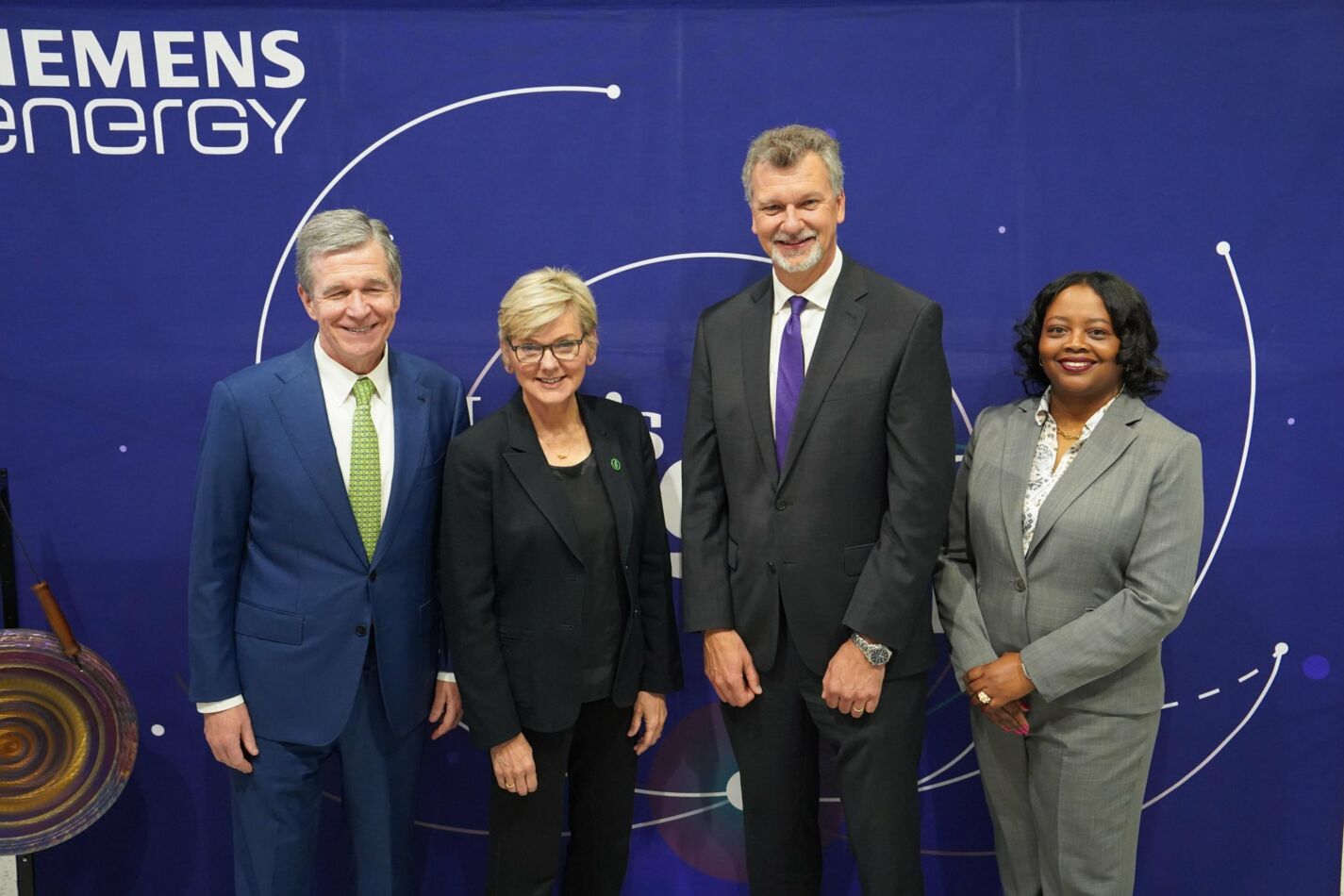Governor Cooper and US Secretary of Energy Jennifer Granholm announced Friday the first distribution from the $1.93 billion earmarked for the Qualifying Advanced Energy Project Tax Credit (48C Program) which is funded by the Inflation Reduction Act.
Earlier this year, the Carolina Journal reported the a Job Development Investment Grant (JDIG) was approved by the North Carolina Economic Investment Committee (NCEIC) and used to leverage Siemens Energy to bring more jobs to the state. This would grow the economy by $1.63 billion over the 12 year term of the grant. Here’s the catch; Siemens Energy would be reimbursed up to “$6,979,500, spread over the 12 years.”
The announcement was made at Siemens Energy, a large power transformer manufacturer based out of Charlotte, which will receive credits as part of the first round of the 48C Program.
“Siemens Energy, Inc., one of the world’s leading energy technology companies and a long-standing North Carolina employer will expand its operations in the state, creating a total of 559 jobs,” said Cooper in a February press release. “The project brings an investment of $149.8 million and will establish in Mecklenburg County the company’s first manufacturing site in the United States to build Large Power Transformers (LPTs), a critical component of the nation’s power grid. The expansion also adds positions to the company’s engineering operations in Wake County.” Siemens Energy made their own announcement.

Siemens Energy plans to add to existing operations by building the first Siemens Energy Transformer production facility in the US.
“With the U.S. aiming to reduce emissions by 50-52% from 2005 levels by 2030, the race is on to decarbonize the U.S. grid, however that can only realistically be achieved through the availability of transformers,” stated the release. Cooper has long pushed for emission reductions in North Carolina, aiming for carbon neutrality, or ‘Net Zero’ despite critics and projected costs increases for energy consumers.
“Secretary Granholm and Governor Cooper are here to celebrate the expansion of our Charlotte facility, which will begin producing large power transformers in 2026,” said Rich Voorberg, president of Siemens Energy in a press release Friday. “This factory will help lead in the modernization and expansion of our electrical grid so it can handle the influx of renewables coming online, the exponential growth of data centers due to the proliferation of artificial intelligence tools and applications and the electrification of industry. Support from the state and the federal government is fostering an atmosphere where it is advantageous to invest in America and strengthen the U.S. domestic clean energy manufacturing supply chain.”
Voorberg opened the event by talking about the jobs being created by Siemens Energy.
“We’re reinvesting here in Raleigh,” said Voorberg. “We’re reinvesting in Charlotte, as well, to grow the facility with the transformers. And with this new announcement, we’re going to create almost 500 jobs full-time, high-paying, good-quality jobs. Not just long-term jobs, but also there’s construction jobs. There’ll be over 300 jobs created to construct the facilities as well. That doesn’t happen unless we’ve got a good private/government agreement to come together.”
Sec. Granholm argued this tax credit program would bring more jobs to North Carolina through Siemens Energy and other companies.
“We are announcing $4 billion in tax credits for over 100 clean energy manufacturing projects across America today, including for Siemens Energy, who intends, obviously as you’ve heard, to harness these savings to produce large transformers for our grid, which is hugely important, and putting 475 people to work in Charlotte making this,” said US Secretary of Energy Jennifer Granholm. “So this is the first round of a $10 million investment and it’s called the Qualifying Advanced Energy Tax Credit (48C) but really what it is, is investing in manufacturing in America, bringing jobs back to America after we have seen them leave.”
Gov. Cooper explained how this program is part of an effort to keep up with a global move toward clean energy.
“We’re going to profit from this and it’s an exciting day not only for North Carolina and Siemens but for communities and partners from coast to coast,” said Cooper, calling the Inflation Reduction Act “the biggest climate change legislation in the country.”
“If there’s one thing that we’ve learned in North Carolina these last few years, a clean energy economy is a strong economy,” he added. “North Carolina’s emergence as a clean energy epicenter has fueled our growth and help set us apart as the number one state to do business for two years in a row.”
The federal legislation funding the tax credits, the Inflation Reduction Act, was almost exclusively described as a bill to reduce rising prices after years of historic inflation under the Biden administration. A report by the John Locke Foundation, which analyzed different energy sources and their associated costs, found ‘clean energy’ sources to be the least reliable, and most expensive when compared to existing power infrastructure based on traditional fuel sources.